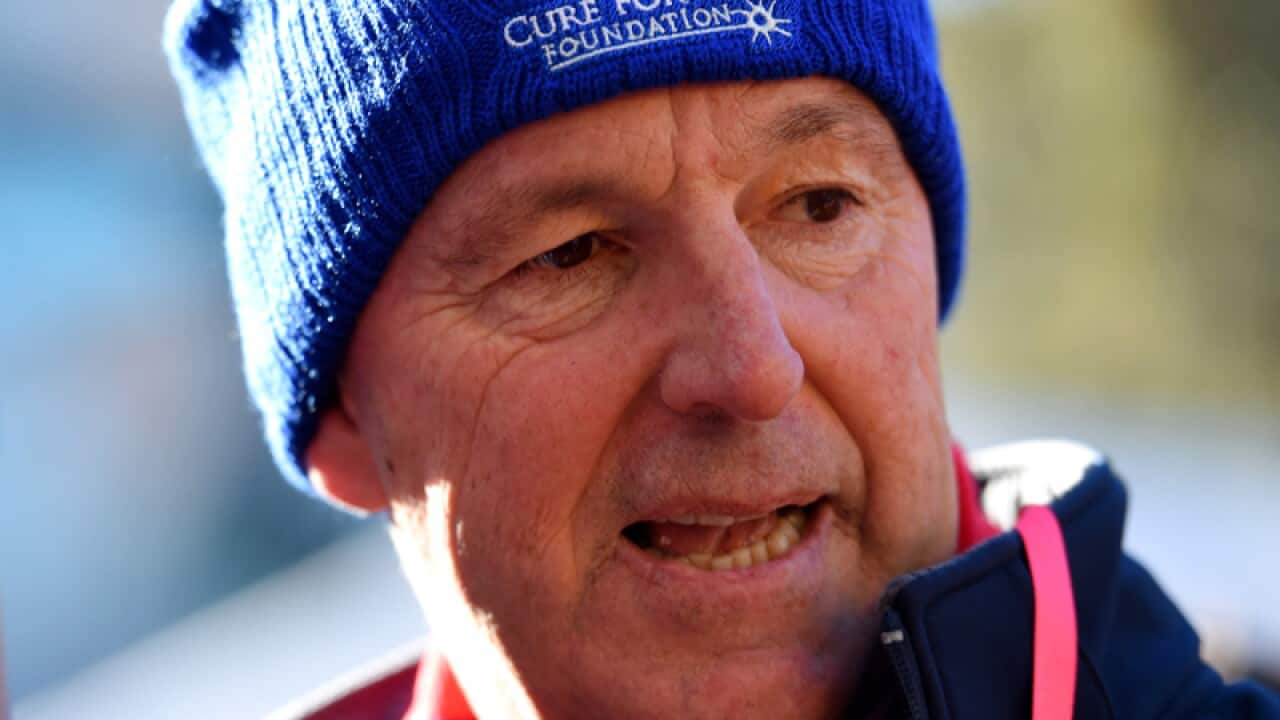AFL legend Neale Daniher is hopeful an $8 million funding boost for motor neurone disease research will lead to a potential cure for the disease he's been battling for almost five years.
The former coach says $8.15 million in research grants from the Cure for MND Foundation will help fast track much-needed clinical trials.
"This funding gives hope to people with motor neurone disease," the vice chairman told reporters on Saturday.
"We want clinical trials here in Australia. We want them now, unfortunately the cupboard is bare."
Increasing medical research into MND provides hope for patients who are currently given no treatment and told they have between two to five years to live, he said.
"We don't think that it's incurable, we think it's underfunded," he said.
"Today is not the knock-out punch, but today is the significant punch we're landing on this disease, but there's so much more to do."
The money has been awarded to eight scientists around Australia and marks the launch of a national initiative focusing on giving patients greater access to drug trials.
"You don't win the fight, you just hang in there," said Daniher, who was diagnosed with MND in 2013.
"For some reason I've got the slower progression, which is great news.
"But we eventually get all knocked out. But I'll be around swinging for a while."
The Victorian government is also providing $3 million towards a research project that uses stem cell technology and a drug screening platform to help identify potential drug breakthroughs 160 times faster.
The project is a partnership between the Florey Institute and the Cure for MND Foundation, and will establish a dedicated MND facility at the institute.
Motor neurone disease attacks nerve cells controlling the muscles that enable people to move, speak, breathe and swallow.
The average life expectancy for someone with MND is two to three years.
Two Australians die from the disease every day and two Australians are diagnosed with MND every day, according to the Cure for MND Foundation.

